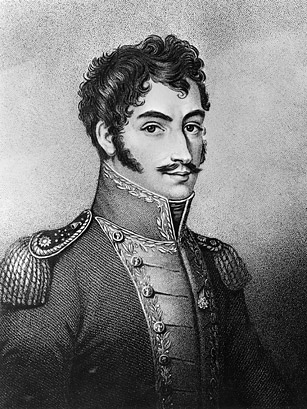
South of the Río Grande, he's known simply as El Libertador — "The Liberator." Streets are so commonly emblazoned with that title, statues of Simón Bolívar on horse are so widely on display in Latin America for the simple reason Bolívar directly led the independence movements of five South American countries. One of them, Bolivia, even named itself after him. The narrative of an unstinting soldier — Bolívar was ejected from Venezuela four times — freeing the oppressed has proved politically irresistible to all subsequent Latin leaders seeking to couch their leadership as a defense of the masses.
Hugo Chávez isn't the first head of state to exploit Bolívar's life story, but the Venezuelan president has taken the strategy to new heights. Chávez has coined his platform as the "21st Century Bolivarian Revolution," in which today's Spanish Empire is the U.S.-led global capitalist order. And when Chávez appears on his weekly-televised program, Aló, Presidente, a huge portrait of Bolívar often appears in the background. Chávez has even dug up Bolívar's remains to investigate the mysterious circumstances surrounding his death. Bolívar's last days were also the subject of Gabriel García Márquez's book, The General in his Labyrinth. In his day, Bolívar was said to be honored by being thought of as "The George Washington of South America," save one gripe he had with the American Revolution — the protection it provided for slavery.